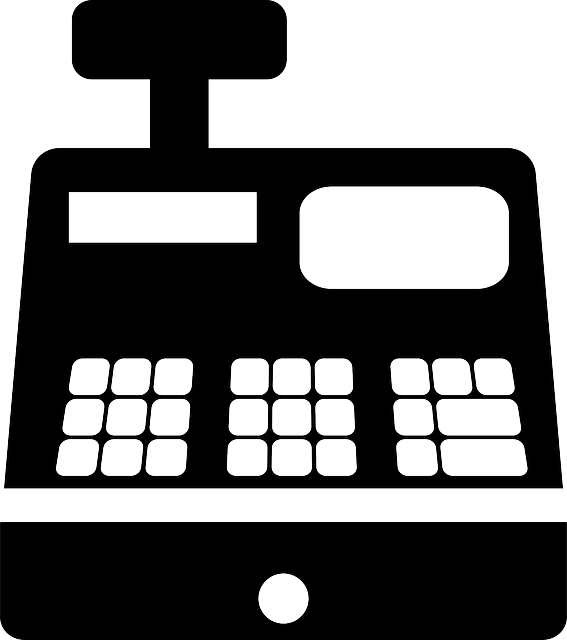Email us if you want to showcase your mind-boggling Articles.

A Comprehensive Guide to Salary Medical Biller and Coder with Benefits
Do you know salary of medical biller and coder? According to the US Bureau of Labor Statistics (BLS), medical billers and coders are categorized as medical records specialists, and on average, they earn an annual median salary of $46,660. This profession is incredibly important for the smooth running of medical institutions, as they are responsible for deciphering the care provided to patients into codes and then submitting them to the payers to get compensations for the doctors and nurses. Let’s read more about salary medical biller and coder.
Salary Medical Biller and Coder
If you’re considering a career in medical billing and coding, you may be wondering what kind of salary and benefits are available. It’s an important question, as you want to make sure that you’re making a sound investment in your education and career. Fortunately, medical billers and coders can expect to receive a decent salary and a wide range of benefits. Continue to read about salary medical biller and coder.
This comprehensive guide will provide you with an overview of the salary and benefits available to medical billers and coders so that you can make an informed decision about your career choice. With this guide on Salary Medical Biller and Coder, you can learn about the average salary for medical billers and coders, the benefits available, and how you can maximize your earning potential. With the help of this guide, you can make an informed decision about a career in medical billing and coding.

According to the U.S. Bureau of Labor Statistics, the position of medical biller and coder falls under the category of medical records specialists and has an average yearly income of $46,660. The critical role of medical billers and coders is to convert information regarding patient care into codes and submit them to parties providing reimbursement; without their job, medical staff wouldn’t be paid for their services.
Percentile data of Salary Medical Biller and Code
10th Percentile: $29,430
25th Percentile: $36,930
75th Percentile: $59,120
90th Percentile: $74,200
All USA States data of Salary Medical Biller and Code
| State | Median Salary | Bottom 10% | Top 10% |
|---|---|---|---|
| Alabama | $36,930 | $24,800 | $59,700 |
| Alaska | $47,820 | $37,190 | $76,550 |
| Arizona | $38,450 | $29,440 | $60,240 |
| Arkansas | $36,850 | $27,950 | $58,920 |
| California | $51,170 | $36,610 | $94,310 |
| Colorado | $47,510 | $36,620 | $74,250 |
| Connecticut | $55,100 | $37,130 | $86,080 |
| Delaware | $46,910 | $29,400 | $60,520 |
| District of Columbia | $60,020 | $37,990 | $96,870 |
| Florida | $38,580 | $29,050 | $63,690 |
| Georgia | $37,500 | $28,810 | $67,690 |
| Hawaii | $48,070 | $37,430 | $77,830 |
| Idaho | $46,480 | $29,450 | $60,620 |
| Illinois | $46,640 | $32,910 | $64,120 |
| Indiana | $46,640 | $29,430 | $62,640 |
| Iowa | $39,870 | $30,380 | $60,930 |
| Kansas | $44,200 | $29,110 | $59,770 |
| Kentucky | $40,100 | $29,010 | $60,580 |
| Louisiana | $38,270 | $28,150 | $60,820 |
| Maine | $37,190 | $29,430 | $58,810 |
| Maryland | $48,350 | $35,730 | $77,810 |
| Massachusetts | $59,120 | $37,090 | $93,720 |
| Michigan | $38,740 | $29,220 | $61,160 |
| Minnesota | $50,470 | $37,840 | $74,200 |
| Mississippi | $36,760 | $22,520 | $59,180 |
| Missouri | $46,520 | $29,110 | $66,020 |
| Montana | $45,840 | $29,650 | $61,250 |
| Nebraska | $39,400 | $29,440 | $60,240 |
| Nevada | $37,510 | $29,270 | $59,380 |
| New Hampshire | $38,180 | $29,440 | $60,240 |
| New Jersey | $61,680 | $46,910 | $96,170 |
| New Mexico | $38,670 | $29,250 | $60,930 |
| New York | $48,350 | $36,930 | $77,810 |
| North Carolina | $38,620 | $29,140 | $60,780 |
| North Dakota | $47,270 | $34,840 | $61,250 |
| Ohio | $46,640 | $29,440 | $62,610 |
| Oklahoma | $44,180 | $29,000 | $60,340 |
| Oregon | $47,940 | $36,930 | $75,940 |
| Pennsylvania | $45,000 | $29,550 | $74,660 |
| Rhode Island | $47,340 | $36,910 | $74,250 |
| South Carolina | $41,140 | $29,090 | $72,470 |
| South Dakota | $46,640 | $29,400 | $71,120 |
| Tennessee | $38,890 | $29,010 | $61,400 |
| Texas | $39,140 | $29,030 | $63,330 |
| Utah | $46,700 | $29,520 | $73,740 |
| Vermont | $46,660 | $36,340 | $59,770 |
| Virginia | $47,410 | $30,570 | $76,240 |
| Washington | $48,500 | $36,930 | $76,950 |
| West Virginia | $37,190 | $28,920 | $59,800 |
| Wisconsin | $47,340 | $37,070 | $62,050 |
| Wyoming | $46,880 | $29,550 | $73,580 |
Source: U.S. Bureau of Labor Statistics (BLS) 2021 median salary; projected salary growth through 2031.
Medical billers and coders are an essential part of the healthcare industry. They are responsible for accurately processing and submitting claims to insurance companies in order to ensure that patients receive the medical services they need. As such, they are essential to the overall financial health of the healthcare system. Let’s read more on Salary Medical Biller and Coder.
Understanding salary and benefits for medical billers and coders is critical for those considering a career in this field. This comprehensive guide will provide an overview of the salary and benefits associated with medical billing and coding, as well as tips for finding the best opportunities. With this knowledge, a career in medical billing and coding can be a rewarding and lucrative one.
Overview of Medical Billers and Coders
Medical billers and coders earn a median annual salary of $50,000 according to the Bureau of Labor Statistics (BLS). Medical billers and coders are responsible for accurately processing and submitting health insurance claims to ensure that patients receive the medical services they need. Medical billers and coders do not diagnose or treat disease but are an essential part of the healthcare system.
Billers and coders can work in a variety of healthcare settings, including hospitals, physician offices, insurance companies, and health information management companies (HIM companies). Medical coders create medical codes and assign diagnoses and procedures to medical records in order to facilitate accurate billing. Medical billers receive medical claims from health care providers, review the claims, determine appropriate payment amounts, and then process the claims to be sent to insurance companies.
Salary and Benefits of Medical Billers and Coders
The salary and benefits of medical billers and coders vary based on the work setting, experience level, and skill-level. According to the BLS, medical billers and coders earn a median annual salary of $50,000. The top 10% of earners in this field make a salary of $73,000 or more. Medical billers and coders employed in hospitals are generally compensated based on an hourly rate.
Those employed in physician offices will most likely be paid an annual salary. The benefits of medical billers and coders vary depending on the nature of the work setting, but often include paid sick leave, health insurance, paid vacation, and retirement benefits.
Factors Impacting Salary and Benefits
The level of experience you have in this field has the greatest impact on your salary and benefits. Senior-level billers and coders with extensive experience in their field can expect to earn a competitive salary. In addition, the size of the employer has a significant impact on salary and benefits.
Larger employers often have more generous salary and benefit packages than smaller employers. The region of the country in which you work also impacts your salary and benefits. Employers in large cities often pay a higher salary and provide more generous benefits than those in smaller cities or rural areas.
Education and Certification Requirements
All states require medical billers and coders to be licensed, certified, or registered. In most cases, you must possess a certification from a nationally recognized organization in order to be licensed. The following organizations offer certification examinations for medical billers and coders: – American Health Information Management Association (AHIMA) – American Medical Billing Association (AMB) – Association for Healthcare Documentation Integrity (AHDI) – Healthcare Financial Management Association (HFMA) – National Health Care Marketing Association (NHCC) Medical billers and coders with a bachelor’s degree in health administration or a related field may be able to complete the necessary coursework without obtaining certification. However, an associate’s degree in the field is usually not sufficient.
Ways to Increase Your Earnings
While the salary and benefits of medical billers and coders are generally good, there are a few ways to potentially increase your earnings and benefits. If you’re interested in a management position, then you may want to consider taking additional courses in management or business administration. You may also want to think about working toward a certification in coding or health information management.
This will not only make you more valuable in your current position, but it may allow you to transition into another position in the medical field. Another way to increase your earnings in this field is to work for a larger employer. Employers in large cities often pay a higher salary and provide more generous benefits than those in smaller cities or rural areas.

Tips for Finding Employment
The healthcare field is projected to experience rapid growth over the next decade, which means there are plenty of opportunities for medical billers and coders. If you’re interested in working in this field, you can start by visiting your state’s health department website, as they often post job opportunities in the industry.
Additionally, you can also search for job openings on Indeed, Monster.com, or other job boards. Additionally, you can also network with people in the field to find employment. You may be able to find work through a friend or family member who works in the health industry or through a professional network such as LinkedIn. You can also consider offering your services as a freelance biller or coder as an alternative to working full-time in the field.
Specialty Areas and Certifications
If your main interest is in coding, you may want to pursue a certification from one of the organizations listed above. If your interest lies more in the business side of the industry, you may want to consider pursuing a health information management certification (HIM certification). This certification allows you to work in a variety of fields related to medical billing, including insurance, health information management, and medical administration. Medical billers and coders can pursue additional certifications that relate to specific medical procedures or specialties.
This may allow you to earn more in your current position or even open you up to other employment opportunities. For example, if your employer is affiliated with a health insurance company, you may be able to obtain certification through that company. This will make you more valuable to your employer because you will be qualified to work with most insurance companies. In addition, it may also allow you to obtain higher-paying employment.
Additional Resources for Medical Billers and Coders
The following organizations provide useful information for medical billers and coders: – American Health Information Management Association (AHIMA) – American Medical Billing Association (AMB) – Association for Healthcare Documentation Integrity (AHDI) – Healthcare Financial Management Association (HFMA) – National Health Care Marketing Association (NHCC) You may also want to consider joining a professional organization related to your specialty, such as a healthcare association. This can be a great way to network with others in your field and obtain information related to your profession.

Who gets paid more a medical biller or coder?
When it comes to salaries, there is no variation between medical billing and coding. What plays a key role in determining how much one earns is the employer, geographical area, and the number of years of experience. Is it difficult to master medical billing?
Conclusion
Finally, we know the Salary Medical Biller and Coder. According to the U.S. Bureau of Labor Statistics (BLS), jobs in the medical billing and coding field are classified as medical records specialists. On average, these professionals earn an annual salary of $46,660. Without medical billers and coders, healthcare providers would be unable to receive reimbursement for the services they provide. This is because billers and coders are responsible for translating patient care into codes that can be submitted to payers.



